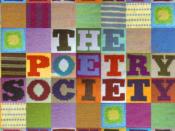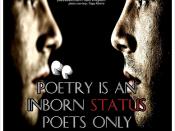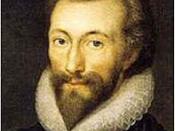George Herbert (1593-1633) was one of the major English metaphysical poets. He was born in Wales and was educated at Cambridge. He was an English clergyman and has become famous for his distinctive religious poetry. Herbert, who was greatly influenced by the work of John Donne, another important metaphysical poet, distinguishes himself from early convention of poetry (golden poetry) which is artifice. Being a religious poet, Herbert was notable for the purity and effectiveness of his choice of words. His verse is marked by quietness of tone, precision of language, and the use of conceits. What is striking about Herbert's style is its clarity and directness. Like John Donne, Herbert uses his poems to question the nature of his relationship to God, often using conceits combined with fairly simple conversational tone to achieving a sense of naturalness and simplicity. An example to Herbert's conception of poetic invention can be seen in his poems: "Love I" and "Love II".
George Herbert criticizes the golden poetry and its artifice by claiming that simplicity is better. Golden poetry is a poetry that has pastoral images and it is very artificial in art, form, subject, verse structure and in language. It has physical images since it is poetry of the eye. Herbert distinguishes himself from this early conventional poetry by using metaphysical poetry. Metaphysical poetry is concerned with the experience of human beings, of love, romance, sensuality, relationships, learning art, and in Herbert's case especially, man's relationship to God. It's associated with drama and non conventional imagery which moves beyond physicality. The hallmark of Metaphysical poetry is the metaphysical conceit (a figure of speech that employs unusual and paradoxical images). It is based on the intellect (so we can't base our analysis only on sight) and includes intellectual wit, learned imagery, and...


